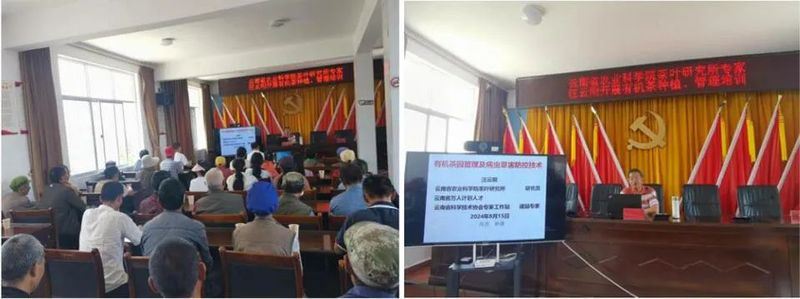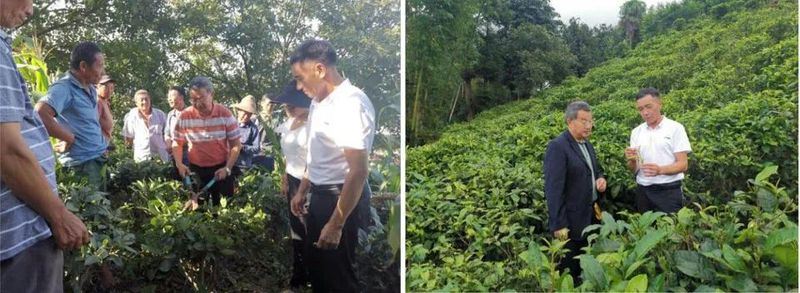Fengqing County is renowned worldwide as the home of Yunnan Black Tea (Dian Hong). It is a national green food raw material (Tea) standardized production base county and a well-known brand creation demonstration zone for the Yunnan black tea industry. In recent years, the county party committee and government have stepped up efforts to attract investment, drawing the nationally recognized brand Menghai Chen Sheng Tea Industry Co., Ltd. to establish Chen Sheng Black Tea Industry Co., Ltd. in Fengqing, which has been put into operation. This has significantly boosted local tea farmers' enthusiasm for tea production. Currently, the county's tea plantations exceed 515,900 mu (approximately 34,400 hectares), with an output exceeding 41,000 tons. With 380,000 people involved in the tea industry, it has become a green industry supporting rural revitalization in Fengqing County.
From August 15 to 17, 2024, at the invitation of the Yunnan Academy of Science and Technology, the Tea Research Institute of the Yunnan Academy of Agricultural Sciences (referred to as the Tea Institute) dispatched researcher Wang Yungang to Luodang Town and De Village in Fengqing County to conduct training on “Organic Tea Garden Management and Integrated Pest and Weed Control.” Researcher Wang Yungang promoted the spirit of the Third Plenary Session of the 20th CPC Central Committee and the scientific concept of “green waters and green mountains are gold and silver mountains.” He explained organic tea garden cultivation, fertilization, pruning, and green organic pest and weed control techniques. He required tea farmers to strictly follow the instructions to integrate Tea culture, tea industry, and tea science, employing “scientifically sound, ecologically organic” measures to grow high-quality tea. This would provide tea companies and primary processing facilities with safe and high-quality fresh leaves, ensuring the first step in the safety of green ecological tea production. By applying organic tea technology, they can beautify the tea mountains, protect the natural ecology, tap into local resource and cultural advantages to develop tea mountain Tourism, and integrate the “primary, secondary, and tertiary” industries of the tea mountains. This accelerates the comprehensive revitalization of rural areas and the pace of Chinese-style modernization.
After the training, participants requested that experts provide hands-on training in the tea gardens for tea tree pruning, identification of pests and weeds, and techniques for improving tea garden quality. Over 50 officials and residents attended the training.

Experts explaining organic tea technology and knowledge

On-site practical training in the tea garden